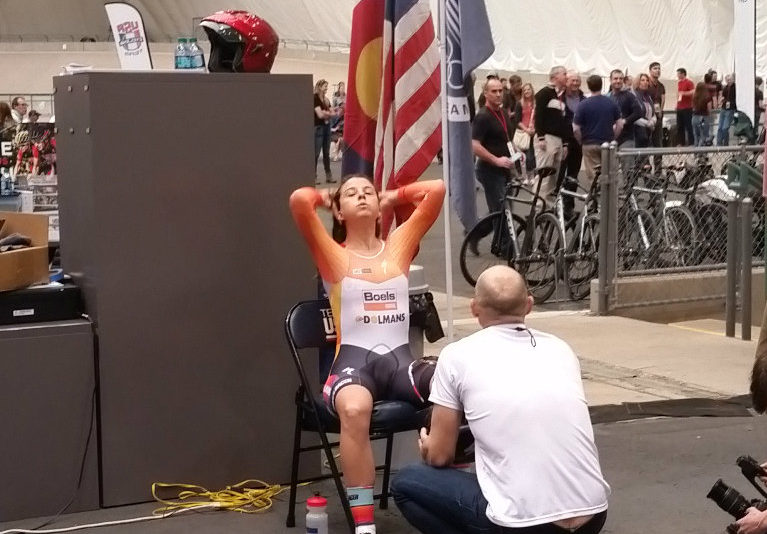Chuck asks: I’m doing ITU long course worlds in November- will racing a number of 70.3s before help get me in the right shape? Due to the intensity that I’ll be racing would [it] make up for longer distance workouts?
I followed up with Chuck and found out that this was his planned race schedule:
Augusta 70.3 on 9/25
Half Marathon on 10/2
Rev3 70.3 on 10/8
ITU LC Worlds on 11/5
ITU Long Course Worlds is the following multisport race:
4 km swim, 120 km bike, 30 km run (in miles swim 2.5, bike 75, run 18.75)
ITU Long Course Worlds is the following multisport race:
4 km swim, 120 km bike, 30 km run (in miles swim 2.5, bike 75, run 18.75)
The 70.3 distance is a 1.2 mile swim, 56 mile bike, and 13.1 mile run.
The meat of the question that Chuck asked is does high intensity at a shorter distance compensate for longer endurance workouts? The answer is that it can, but for Chuck at this point in the season it depends on a few factors.
1) Your current fitness – What type of fitness you have built during your racing season leading up to your final races? We can think of the purpose of our training season is to train our energy systems to be most efficient for the types (distances) of races we will be doing, and preparing our muscles to handle the load of those races. In Chuck’s case, the culmination of his training season must prepare him for a long endurance race.
2) Your recovery – This is actually probably the most important factor when looking at Chuck’s schedule. While racing shorter and faster (yet still long endurance events using very similar energy systems) can boost his fitness for the Long Course Worlds, Chuck would need to make sure he is rested going into those final 70.3 races. I have found that the 70.3 distance can require at least a week of recovery. For the typical age-grouper, several high volume races in a short time-frame will take a pretty good toll on the body. As the 70.3s were only two weeks apart, with a half-marathon thrown in between, I would question Chuck’s ability to recover adequately.
3) Your physiological specifics – Some people might respond better to high volume, lower intensity training, others just fine to intensity. Recovery time is wrapped up in this as well. It takes time and trial and error to find out what kind of training can get you to your best performance.
While I feel an athlete could be successful with your above schedule, there would have to be a real purpose to the races leading up to the final race, otherwise you might hit the Long Course Worlds exhausted. I would recommend to not race them as an ‘A’ race, but rather use them to test pacing and nutrition for the Long Course Race, which will be a bit slower than the 70.3. The more you push the 70.3, the more recovery you will need. Scheduling a half-marathon the week after a 70.3 might be a bit hard on the body unless you are used to high mileage running weeks.
If I were to write Chuck’s training plan, I’d have the Rev3 Tri as his “tune-up” race to test pacing and nutrition before ITU Worlds, but no Augusta 70.3. If he was set on doing a half-marathon, I would have that about 2-3 weeks before the 70.3. I’d also make sure his training workouts included longer swimming sets.
If you are one to schedule a lot of races in a season, take the above points into account. I would suggest that Chuck work with a coach to guide him through the recovery process after the 70.3s and help him craft a specific race plan for Long Course Worlds. Recovery (and nutrition) is very important! If Chuck uses the time after the last 70.3 to truly recover and races ITU within his known abilities then he can certainly have a successful race.
If you are one to schedule a lot of races in a season, take the above points into account. I would suggest that Chuck work with a coach to guide him through the recovery process after the 70.3s and help him craft a specific race plan for Long Course Worlds. Recovery (and nutrition) is very important! If Chuck uses the time after the last 70.3 to truly recover and races ITU within his known abilities then he can certainly have a successful race.
Note: since getting this question, I’ve learned that Chuck did not do the Rev3 race, so he has the opportunity for nice recovery before ITU. Good luck!!
Coach Nicole is the author of The Triathlete’s Guide to Race Week. She is also the founder and head coach for NEO Endurance Sports & Fitness, a Colorado-based endurance sport coaching company. She is a USAT Level 1 Certified Coach, a USA Cycling Level 3 Coach, and also coaches triathlon for Team In Training. Learn more at https://neoendurancesports.com/. You can contact Coach Nicole with your questions for the Ask the Coach column on facebook, twitter or via email at nicole@neoendurancesports.com.
Coach Nicole is the author of The Triathlete’s Guide to Race Week. She is also the founder and head coach for NEO Endurance Sports & Fitness, a Colorado-based endurance sport coaching company. She is a USAT Level 1 Certified Coach, a USA Cycling Level 3 Coach, and also coaches triathlon for Team In Training. Learn more at https://neoendurancesports.com/. You can contact Coach Nicole with your questions for the Ask the Coach column on facebook, twitter or via email at nicole@neoendurancesports.com.







